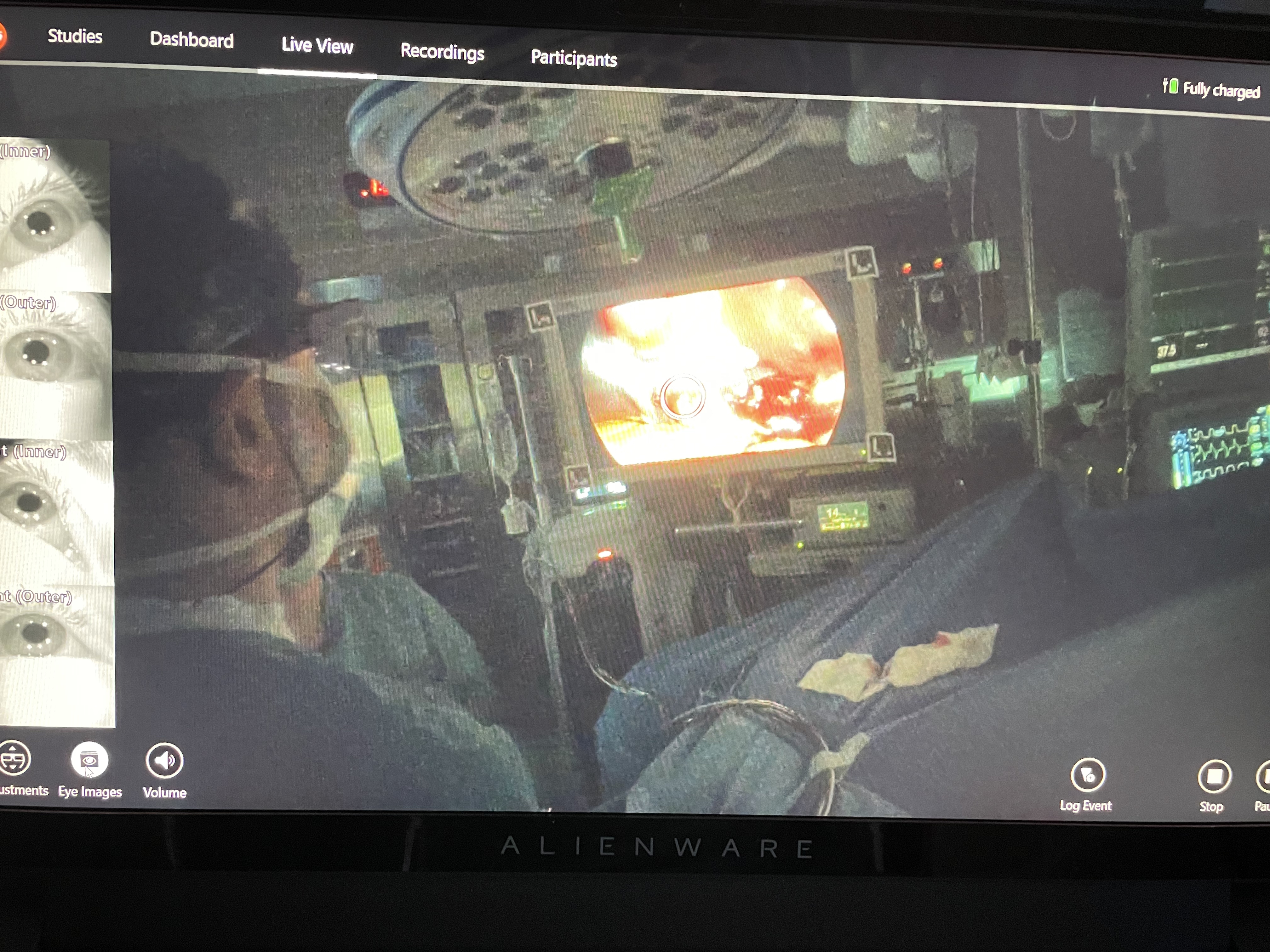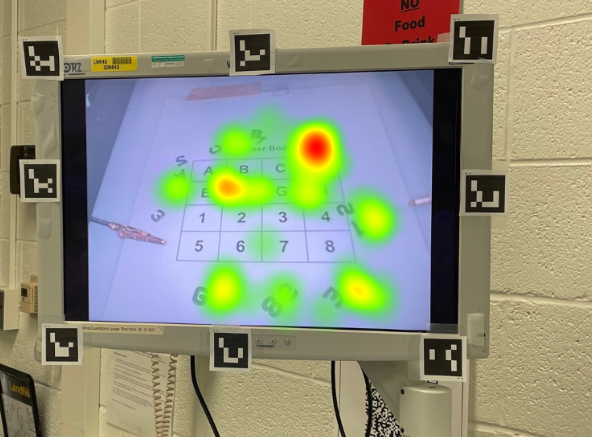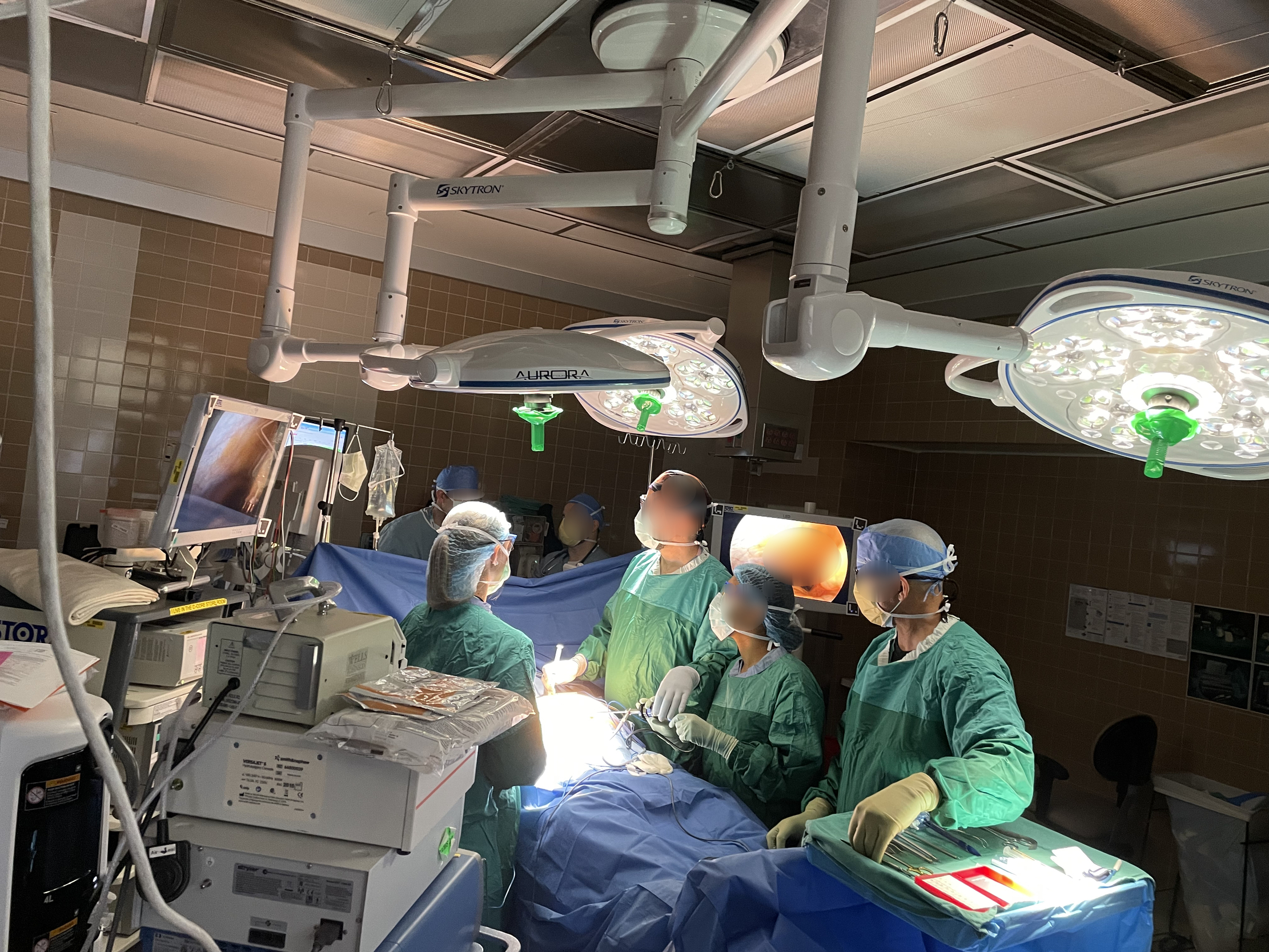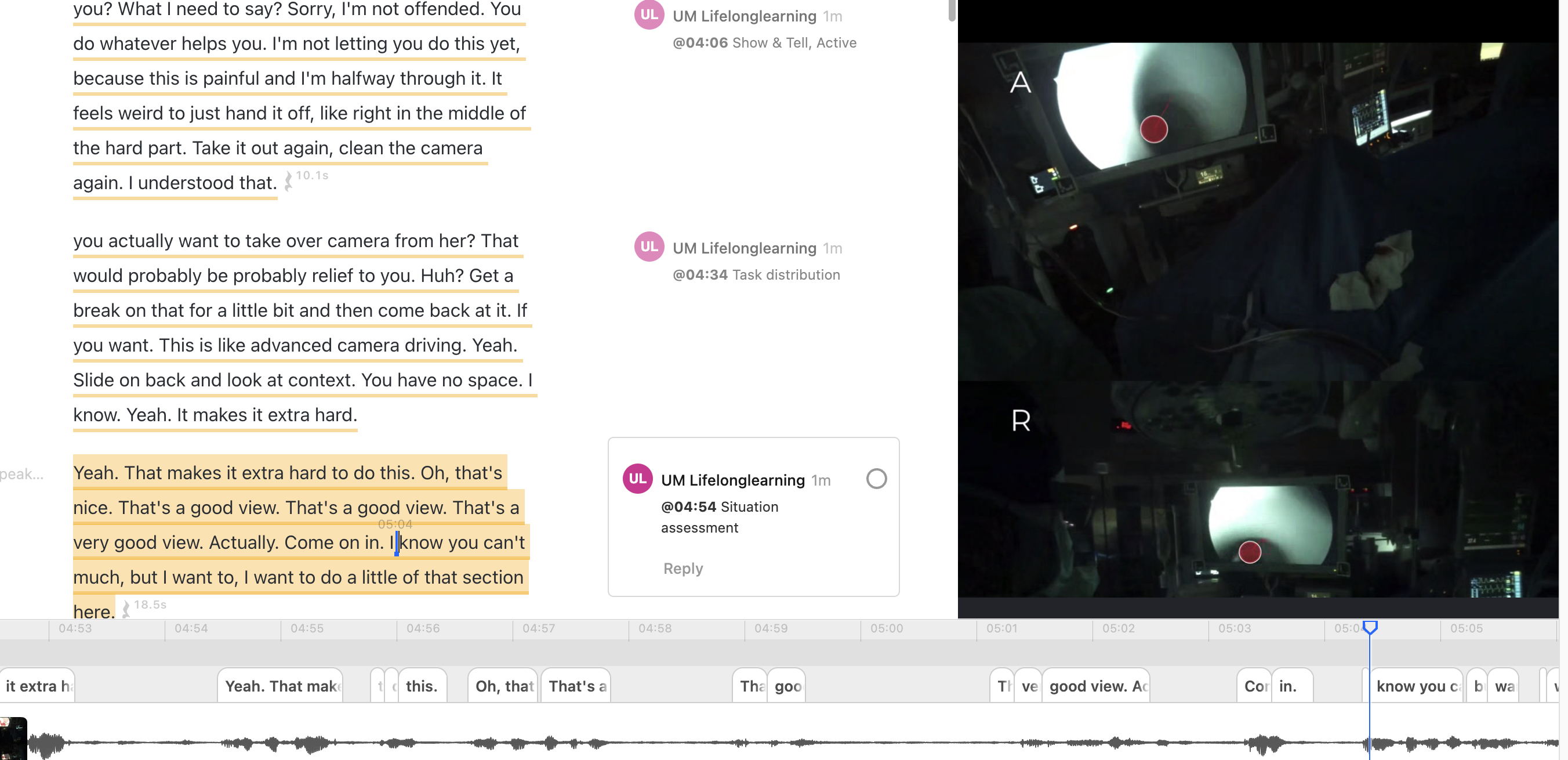JVA in OR
Joint Visual Attention in Surgical Faculty-Resident Dyads
Learning how to do minimally invasive surgeries (i.e., a type of surgery that involves smaller incisions and shorter recovery time) is a cognitively demanding task that requires a high degree of visuo-spatial coordination between attending (trainer) and resident (trainee) surgeons. The purpose of this project is to determine whether eye-tracking data can be leveraged to augment assessment of surgeons’ readiness and provide trainee-specific opportunities for feedback, practice, and/or remediation. The research team (including collaborators from the Computer Science Department and Department of Surgery at U-M) has done substantial prior work, including a series of operating room observations with eye tracking data collection, and an interview study understanding surgeons’ needs and challenges with intraoperative coordination, teaching, and learning. To learn more about this research



We are currently developing human-AI collaborative techniques that could enable expert surgeons to create scalable training modules, and enable resident surgeons to monitor their own progress from novice to expert

TEAM MEMBERS: Xu Wang, PhD, Assistant Professor in Computer Science and Engineering at the University of Michigan, Anhong Guo, PhD, Assistant Professor in Computer Science and Engineering at the University of Michigan, Gurjit Sandhu, PhD, Associate Professor in the Department of Surgery and Learning Health Sciences, University of Michigan Medical School, Brian George, MD, MA, Associate Professor of Surgery in the Department of Surgery and Learning Health Sciences, University of Michigan Medical School, Jingying Wang, PhD student.